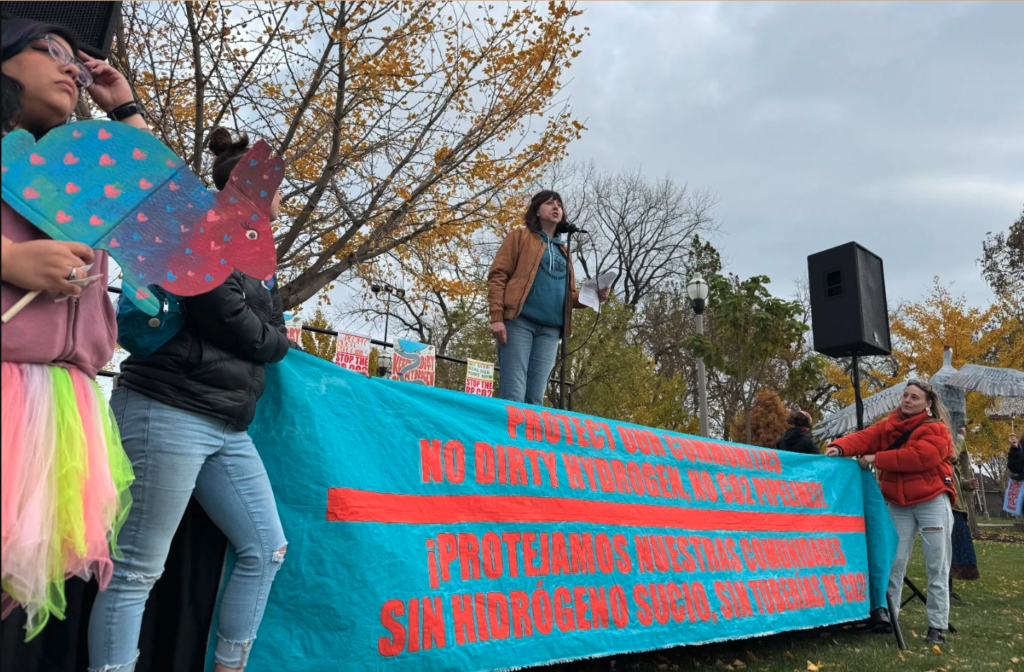Environmental groups in the state of Florida are working overtime this week in an attempt to stop a bill from passing the Florida Legislature that would give corporations the green light to destroy the environment. The bill, HB-991, would make it easier for corporations to obtain permits for things like mining, manufacturing, and razing an entire ecosystem for companies doing business in Florida. Audubon of Florida, 1000 Friends of Florida, the Sierra Club, the Florida Wildlife Federation, the Nature Conservancy and the National Parks Conservation Association have joined forces this week, urging people to make phone calls to their representatives in an effort to stop the bill.
What makes that bill so dangerous is that it shifts environmental burdens from corporations to citizens. If passed by the Republican-controlled Florida legislature, the bill would no longer require a company to prove that their activities would not harm the environment or nearby residents. Instead, residents who say that companies are polluting or otherwise destroying the environment will have to prove to the state that these things are happening.
The Florida Sierra Club lays out the major provisions of the bill:
The bill limits local regulation of mining, affirms that groundwater can be contaminated by landfills, allows increased development in wetlands, reduces regulation of beach armoring projects, and excuses owners of underground tanks from protecting groundwater from leaking fuel, while greatly diminishing the rights of citizens to challenge environmentally harmful projects.
The bill stacks the deck against citizens who challenge permits, even if harmed by the permitted activity. Current law requires the applicant and the agency to defend the issuance of permits and is very specific in the order of presentation of evidence and arguments in hearings. The bill shifts the complete burden on those persons challenging permits and therefore reduces the rights of citizens to protect themselves.
They go on to list more ramifications:
– Deprive citizens of due process when they try to challenge permits that will hurt the environment
– Shift the burden of proof to citizens in challenges rather than leaving it with the applicant who currently has the burden of showing they are in compliance with all permit requirements
– Preempt localities from regulating the environmental impact of mining activity (one of the most disruptive land uses imaginable)
– Exempt phosphate mines from the development of regional impact process.
– Reduce the information agencies are allowed to request when processing permit applications
– Put into statute that groundwater can be contaminated down to the base of the aquifer all the way out to the property line
House Republicans and business groups are selling the bill as a “job creator” – a tactic that is playing out well in a state that has lost over a million jobs in the last few years. However, their cries of “job creation” are clearly just a smokescreen, as Florida’s Republican governor Rick Scott recently turned down $2.4 billion in federal stimulus money to build high speed rail from Tampa to Orlando, a project that was projected to create 20,000 permanent jobs, in addition to thousands more construction jobs that would have been needed for the project. If job creation was the real agenda, this project would have been greenlighted in a heartbeat.
So what is the real motivation behind the push to remove environmental protections? To understand the answer to that, you have to look at the man who sponsored HB-991 – Republican Jimmy Patronis from Panama City. Patronis rode into office in 2008 on a wave of corporate cash. The maximum allowance for campaign contributions at the time was a paltry $500 per donor, but that didn’t stop Patronis from pulling in more than $125,000 from corporate interests.
Among Patronis’s top donors are those who stand to gain the most from the passage of HB-991, including Koch Industries’ subsidiary Georgia Pacific, Florida Phosphate (a mining company), the Florida Association of General Contractors, and the Florida Chamber of Commerce. Mr. Patronis also pulled in the maximum $500 allowance from material manufacturing companies, crop production companies, pharmaceutical companies, steel manufacturers, and various other contracting companies.
All of these industries that helped put Patronis in office stand to make huge gains under the proposed laws. A debate on the bill is scheduled for April 29th, and you can bet that these corporate interests will be standing by, waiting to write more checks for their favorite Florida congressman.
Subscribe to our newsletter
Stay up to date with DeSmog news and alerts







